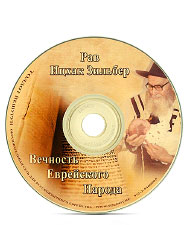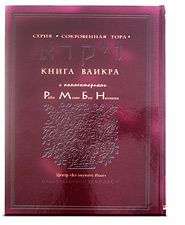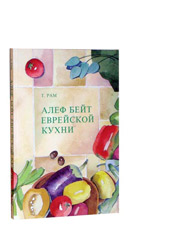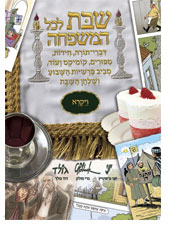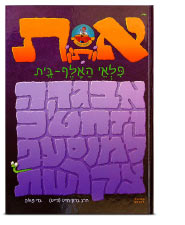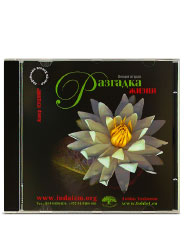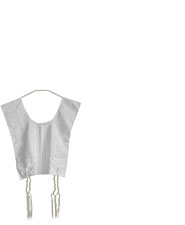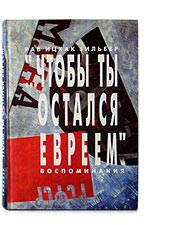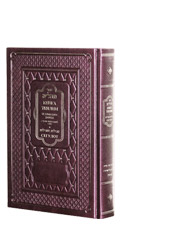
The Memoirs of Rav Yitzchok Zilber zt"l "To Remain A Jew" - Under One Roof With Amalek
One of these Jews stopped me, handed me, an eleven-year-old child, a box of matches and said, “Nu, light it or I will hit you!”
Under one roof with Amalek
So, the main room of our communal apartment was the gathering place for Yevsektsia activists. They used to crowd into there especially on Shabbos and holidays. It was not coincidental that they were housed next to the rabbi’s family.
I remember how once I came home Friday night and wanted to slip into my room. One of these Jews stopped me, handed me, an eleven-year-old child, a box of matches and said, “Nu, light it or I will hit you!” I didn’t light it. I wiggled out of his hold and ran away. This happened in my own apartment!
My grandfather, Moshe Mishel Shemuel Shapiro, referred to these times in the last letter written by him in 1928. “My dear grandson, Yitzchak Yosef! I and your grandmother are very concerned for you living in a ‘cold climate.’ All our prayers to God are for you to remain a Jew, who knows and keeps the holy Torah.” The letter is covered with tears. Soon thereafter, my grandfather passed away.
In 1930, all the ethnic sections of the Communist Party, including the Yevsektsia, were liquidated. Less than ten years had passed and Stalin began destroying those who had served him loyally. I would like to bring a quote about this period from my book The Flame Will Not Consume You (pp. 76–77).
The father of “scientific” communism, Karl Marx, was the son of Jewish parents. They baptized him when he was six. This false messiah succeeded in drawing many followers. Many of them belonged to the type of people about whom Engels used to write: “A Jew is revolutionary by his very nature. He is brought up on the ideals of prophets about the equality and brotherhood of all people.”
A substantial percentage of members of the Communist Parties of all the countries in the world are Jewish. Jews were in the avant-garde of the Russian Revolution and were the fiercest enemies of the religion of their fathers for half a century. They bear the blame for the mass assimilation of Soviet Jews. With their assistance, Lenin and Stalin destroyed our ancient culture. They harassed their brothers learning Torah and Hebrew. We remember well their own fate — the former members of the Party, the executioners — revolutionaries of Jewish origin. Almost all of them died in the same cells where they had sent their brothers, who had stayed true to their God and their people. Those who miraculously survived regretted their past. Many, upon their release, repented and returned to Judaism. “Your evil shall castigate you, your waywardness shall chasten you, realize and understand that your forsaking of Hashem, your God, is evil and bitter” (Jeremiah 2:19).
After Stalin’s “cleansings” of the young Yevsektsia members of
We are the dispossessed
At the end of 1920, we were thrown out of our apartment. My father was a rabbi and therefore was dispossessed — of his apartment and his right to vote.
Children of “the dispossessed” were not admitted into any college and could not find work. I remember a sad story which I read in a newspaper when I was a student. When a certain young man graduated from the university it became known that he belonged to “the dispossessed”. He was asked why he didn’t reveal his social origin and he replied that he wanted to be able to study. “This is not an excuse,” he was told. He was tried and imprisoned.
My father, being “dispossessed,” was sent to forced labor on the outskirts of the city. Every day he walked many hours there and back. He worked in the field. As a rabbi, he could not count on any other job. But on Shabbos my father stayed at home, no matter how strongly they threatened him, no matter how much they screamed. We expected serious trouble, but later my father was released from this work due to poor health. Later he was cleared from the status of “dispossessed” due to the efforts of his sister Leah, who lived in
When we were thrown out of our apartment, we rented a room from a private homeowner. He had a small house and a backyard. He was a very nice religious Russian man, a Christian.
At that time our life was not easy, but we were happy to have a roof over our heads. I remember once, when we had no money even for bread, my mother wanted to go and borrow three rubles. My father thought and said, “In Birkas HaMazon (Grace after Meals) we always say, ‘Help us not to be dependent on gifts from mortals, nor on their loans.’ Look around the house more — maybe you will find something?”
My mother looked some more and found half a cup of flour and something else. She gathered a few wooden splinters, made a fire and cooked a couple of flat cakes. We lived peacefully and happily for three days without borrowing from anybody.
Our apartment was considered large by the standards of those times — two-and-a-half rooms. I remember how every day my mother would raise her hands upward and say, “O God, thank You for giving us a roof.” But our joy was not long-lived: we settled somewhere else in 1929, and in 1930, a week after my bar mitzvah, we were thrown out again.
Until 1936 Rav Yitzchak’s family held the status of “dispossessed.” We were “dispossessed” too. In 1936 our family was thrown out of our house and the house was expropriated. Then we were living in the little Ukrainian town of
Maybe because Yitzchak became “dispossessed,” he started working at the age of fourteen. In those times there was a five-day work week: five days work and the sixth day off. So sometimes the day off would fall on Friday, sometimes on Shabbos or Sunday. Even the names of the days of the week were eliminated. Instead, they were called by numbers: first, second, and so on. The sixth was the day off. Those were hard times.
— Dr. Yaakov Tzatzkis




